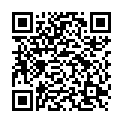|
|
|
| Module code: DFI-SWKS |
|
2V+2P (4 hours per week) |
|
6 |
| Semester: 2 |
| Mandatory course: no |
Language of instruction:
German |
Assessment:
Project work
[updated 13.11.2024]
|
DFI-SWKS Computer Science, Master, ASPO 01.10.2018
, semester 2, optional course
KIM-SWKS (P222-0070) Computer Science and Communication Systems, Master, ASPO 01.10.2017
, semester 2, mandatory course
PIM-SWKS (P221-0191, P222-0070) Applied Informatics, Master, ASPO 01.10.2017
, semester 2, optional course, informatics specific
PIM-SWKS (P221-0191, P222-0070) Applied Informatics, Master, SO 01.10.2026
, semester 2, optional course, informatics specific
|
60 class hours (= 45 clock hours) over a 15-week period.
The total student study time is 180 hours (equivalent to 6 ECTS credits).
There are therefore 135 hours available for class preparation and follow-up work and exam preparation.
|
Recommended prerequisites (modules):
None.
|
Recommended as prerequisite for:
|
Module coordinator:
Prof. Dr. Reinhard Brocks |
Lecturer: Prof. Dr. Reinhard Brocks
[updated 09.08.2020]
|
Learning outcomes:
After successfully completing this module, students will be able to complete a project in the area of communication systems, even with unfamiliar software frameworks and development tools, in order to quickly familiarize themselves with a complex project in the company.
[updated 13.11.2024]
|
Module content:
Students will carry out a software project on a topic from the field of communication networks. As a rule, it should cover all aspects of the development process, from build management, requirement engineering, software design and implementation to testing and deployment. The project must be documented and will end with a presentation by the student.
Possible technical aspects:
* Serialization Codec implementation based on various serialization techniques (ASN.1, JSON, XML, Protobuf)
* Test automation: Unit testing, browser testing, performance measurements, load and stress testing
* Communication: REST, GraphQL, interprocess communication, client-server programming based on different transmission protocols (UDP, TCP, HTTP, MQTT), encrypted network connections, streaming
* Model-driven software development, domain-specific languages
* Single-board computers
* Network simulation
* Implementation techniques of protocol layers and state machines
* Threads / Parallel programming
* Timer
* Tracing / Logging / Monitoring
* Platform configurations, server management
[updated 19.05.2023]
|
Teaching methods/Media:
In progress...
[updated 30.06.2025]
|
Recommended or required reading:
Class literature will be based on the projectís context. This usually consists of online sources on the frameworks used, software development tools or textbook literature on design methods.
[updated 19.05.2023]
|

